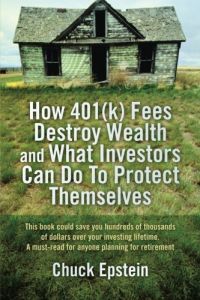Join getAbstract to access the summary!

Join getAbstract to access the summary!
Chuck Epstein
How 401(k) Fees Destroy Wealth and What Investors Can Do to Protect Themselves
CreateSpace, 2012
What's inside?
If you’re an investor with a 401(k), learn how fees and expenses can erode your investment returns.
Recommendation
For decades, the 401(k) industry has not provided full disclosure to employee savings plan sponsors or to individual investors. But as these plans became the dominant engine of retirement wealth in the US, they attracted more attention, especially from the US Department of Labor, which finally enacted far-reaching disclosure rules in 2012. Now, to the displeasure of the funds industry, employees and employers can see what funds charge them and what their investments really earn. Mutual fund expert Chuck Epstein offers a revealing, behind-the-scenes look at this esoteric regulatory change. He covers the impact of the change on employer-employee relationships and on the netherworld of mutual fund sales practices. The book’s title may sound prosaic, but the author capably addresses the politically incorrect and heretofore veiled topic of wealth destruction. He shows that American investors can protect their portfolios. getAbstract recommends this to 401(k) participants, plan sponsors and investors who should know how fees can eat away their savings.
Summary
About the Author
Chuck Epstein has held senior positions in the mutual fund and listed futures industries at the New York Futures Exchange, Chicago Mercantile Exchange and several investment research firms. A getAbstract senior writer, he edited Managed Futures in the Institutional Portfolio and The Handbook of Corporate Earnings Analysis.


















Comment on this summary